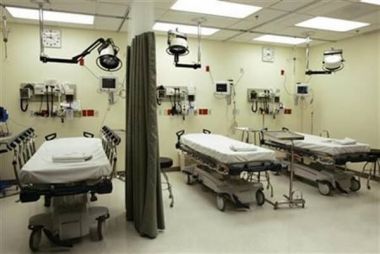In some US hospitals, patients get charged over 10 times the cost of healthcare

The cost of healthcare in 50 hospitals in the United States is more than 10 times higher for uninsured patients compared to the actual cost for patient care, a recent study published on a medical journal revealed.
The study conducted by Ge Bai and Gerard Anderson showed that almost all of these overcharging hospitals are for-profit entities.
These hospitals with high mark-ups are also found to be located not in pricey or big cities, but in neighbourhoods where residents can barely afford the cost of patient care.
The study, which was published on Health Affairs, also discovered that 20 of these 50 hospitals that overprice their patients are located in Florida — the highest number among all American states.
The most expensive hospital, for instance, is located in the Florida Panhandle: the North Okaloosa Medical Center. The hospital, which has a 110-bed capacity, charges uninsured patients 12.6 times the actual cost of healthcare.
The researchers also uncovered another interesting discovery: one for-profit hospital system, the Community Health Systems, owns half of these 50 overcharging hospitals.
Anderson, a professor at Johns Hopkins Bloomberg School of Public Health, explained that these hospitals overcharge their uninsured patients because of lack of market competition.
He added that the federal government does not regulate the prices that healthcare providers can charge their patients. This responsibility is left to individual states, and only Maryland and West Virginia has so far set hospital rates.
"They are price-gouging because they can. They are marking up the prices because no one is telling them they can't," Anderson said.
"These are the hospitals that have the highest mark-up of all 5,000 hospitals in the United States. This means, when it costs the hospital $100, they are going to charge you, on average, $1,000," he added.
Officials of the 50 hospitals, however, disputed the study's findings. They even claimed giving discounts to uninsured patients.











